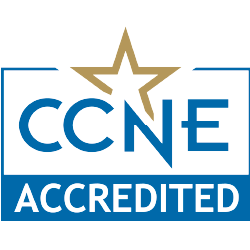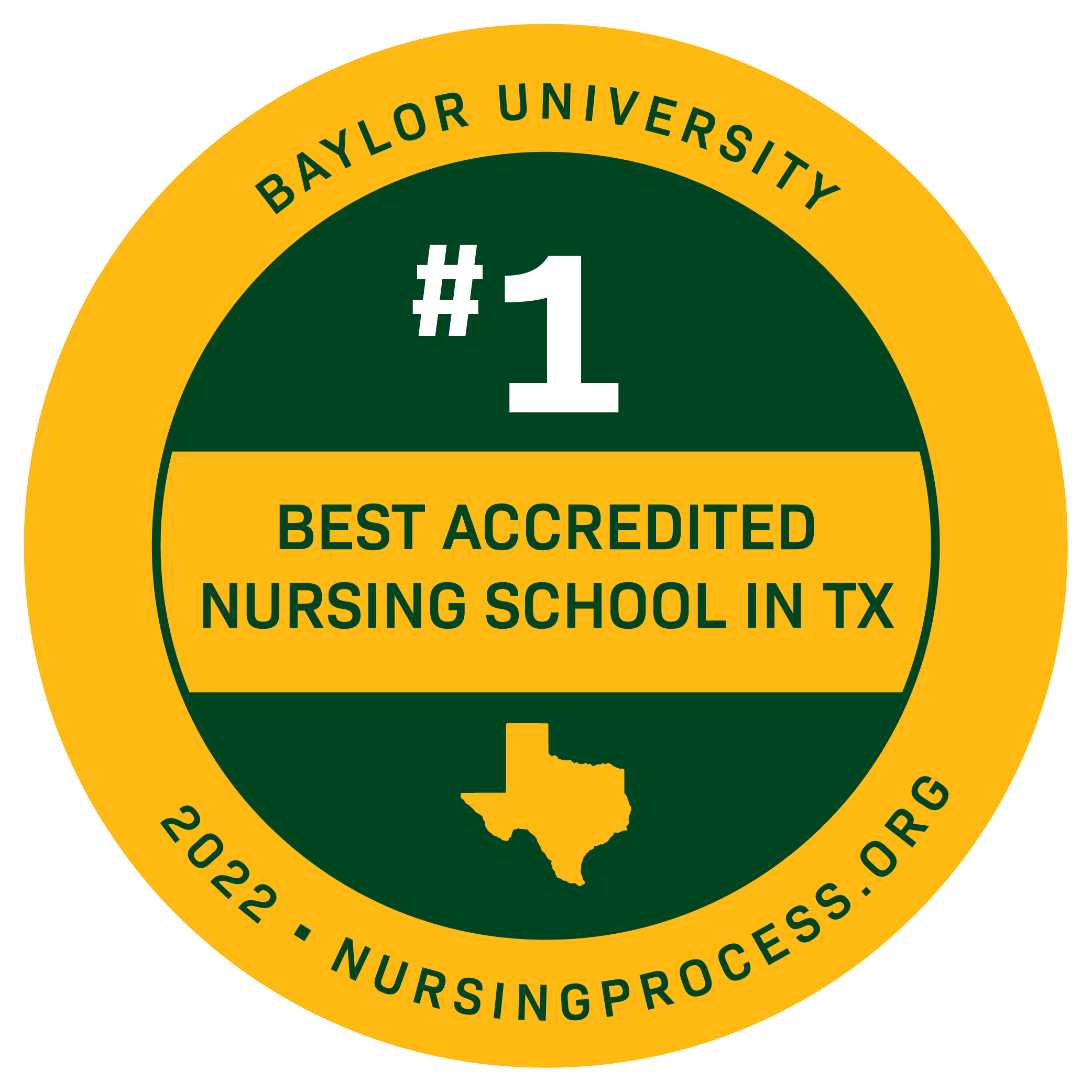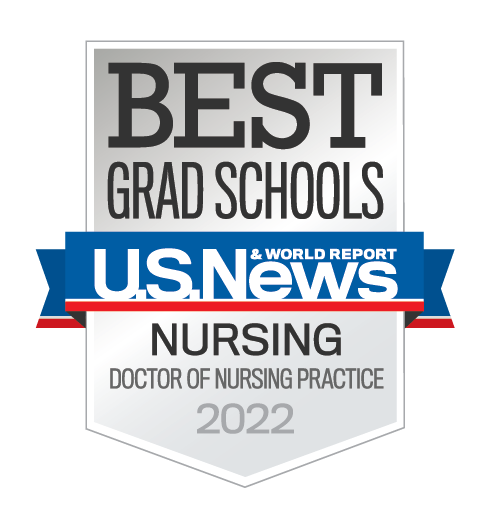Welcome
This is your comprehensive digital program guide where you will find all the information you need regarding the DNP – Adult-Gerontology Acute Care Nurse Practitioner program.
Ready for the next step?
Schedule an appointment with your dedicated Enrollment Advisor to discuss the program details, admissions requirements, tuition and financial and more.
Online Doctor of Nursing Practice - Adult-Gerontology Acute Care Nurse Practitioner
The online Doctor of Nursing Practice Adult-Gerontology Acute Care Nurse Practitioner (DNP-AGACNP) track develops exemplary nursing leaders by focusing on advanced methods to promote patient-centered care, knowledge of information systems and technology required to deliver transformative healthcare, and the skills needed to evaluate the healthcare needs of diverse and vulnerable populations.
Two entry options are available:
BSN to DNP
75 Credits
Just over 3 years to completion
$1,150 per credit hour
Post-Master's DNP(coming soon)
31-37 Credits
2 years to completion
$1,150 per credit hour
Baylor's Online DNP AGACNP Program Fast Facts
-
- CCNE-accredited** and U.S. News & World Report ranked program
- Online main coursework with on-campus immersions throughout the program
- Practicum requirement total: 1,125 hours
- 15-week courses with three terms per year
- Nationally recognized faculty for students to learn from
- Clinical Placement Support
- Total credits: 75
-
-
-
-
-
- CCNE-accredited** and U.S. News & World Report ranked program
- Online main coursework with on-campus immersions throughout the program
- Practicum requirement total: 1,125 hours
- 15-week courses with three terms per year
- Nationally recognized faculty for students to learn from
- Clinical Placement Support
- Total credits: 75
DNP-AGACNP Course Curriculum
The online DNP-AGACNP program track focuses on the complex acute, chronic and critical care needs of adult patients through an advanced curriculum that includes advanced pharmacology, applied ethics for APN, translational science and health informatics. View sample courses below.
Connect with one of our friendly Enrollment Advisors for access to this year’s Academic Catalog for the Louise Herrington School of Nursing, featuring a complete DNP course list for this track along with full course descriptions.
This course includes the application of pathologic disease mechanisms and advanced pharmacotherapy to refine and integrate techniques of history taking, physical examination, and diagnostics. Development of differential diagnoses that are prioritized based on clinical assessment, critical thinking, and clinical reasoning to narrow down the appropriate final diagnosis for adult and gerontology populations.
The purpose of this course is to explore high quality healthcare of geriatric patients which requires special knowledge and skills including identifying the normal and abnormal changes of the aging body with an overview of psychological, sociological, and physiological processes related to aging with particular attention to environmental, circumstantial, and behavioral concerns including cognition, perception of health, performance status, falls, malnutrition, pharmacotherapy, substance abuse, elder neglect and abuse, and end of life issues. Indications for collaboration and communication with the interprofessional team is emphasized as well as exploring community resources and care of the informal caregiver.
This is the first course of three, and the purpose of this course is to prepare AGACNP students to assess, diagnose, and coordinate healthcare needs of adults and older adults to include health promotion, disease prevention, and disease management. Emphasis is on synthesizing theoretical, scientific, and evidence-based practice knowledge to manage selected common health problems in adult-gerontology patients in a variety of inpatient and outpatient settings. Indications for collaboration, consultation, and referral with the interprofessional team using patient-centered, evidence-based, high-quality, cost-effective care in a culturally diverse system are essential functions of the adult-gerontology acute care nurse practitioner’s role. The accompanying practicum provides students with an opportunity to utilize theoretical knowledge and clinical decision-making skills in the management of care of adult and geriatric patients experiencing common health problems.
The AACN Synergy Model is used as a framework for AGACNP practice focusing on patient-centered physical, social, psychological, and spiritual care across the health-vulnerability continuum. The AGACNP is responsible for knowing and understanding patient characteristics shared by nurses, patients, and systems to include resiliency, vulnerability, stability, complexity, resource availability, participation in care, participation in decision-making, and predictability to restore a patient to an optimum level of wellness as defined by the patient which includes end-of life care (AACN, 2015a). The AGACNP must have knowledge, skills, attitudes, and experience to meet the needs of patients and families and include competencies of concern for patients, nurses, and systems such as clinical judgement, advocacy and moral agency, caring practices, collaboration, systems thinking, response to diversity, clinical inquiry, innovator/evaluator, and facilitation of learning (AACN, 2015a).
This is the second course of three, and the purpose of this course is to explore evidence-based practice models for the management of selected chronic health problems and acute exacerbations of those complex, chronic health problems. Students will focus on assessment, diagnosis, and treatment of adult-gerontology patients synthesizing theoretical, scientific, and evidence-based practice knowledge to manage selected chronic health problems in adult-gerontology patients in the acute care setting and/or specialty clinic. Indications for collaboration, consultation, and referral with the interprofessional team using patient-centered, evidence-based practice, high-quality, cost-effective care in a culturally diverse system are essential functions of the adult-gerontology acute care nurse practitioner’s role to improve health outcomes. The accompanying practicum provides students with an opportunity to utilize theoretical knowledge and clinical decision-making skills in the management of care of adult-gerontology patients experiencing chronic health problems.
The AACN Synergy Model is used as a framework for AGACNP practice focusing on patient-centered physical, social, psychological, and spiritual care across the health-vulnerability continuum. The AGACNP is responsible for knowing and understanding patient characteristics shared by nurses, patients, and systems to include resiliency, vulnerability, stability, complexity, resource availability, participation in care, participation in decision-making, and predictability to restore a patient to an optimum level of wellness as defined by the patient which includes end-of life care (AACN, 2015a). The AGACNP must have knowledge, skills, attitudes, and experience to meet the needs of patients and families and include competencies of concern for patients, nurses, and systems such as clinical judgement, advocacy and moral agency, caring practices, collaboration, systems thinking, response to diversity, clinical inquiry, innovator/evaluator, and facilitation of learning (AACN, 2015a).
The purpose of this course is to focus on the management of adults and older adults with common health problems encountered in acute care. Emphasis is on providing students with an opportunity to utilize theoretical knowledge and clinical decision-making skills in the management of care of adult-gerontology patients experiencing common health problems.
The purpose of this course is to provide students with an opportunity to integrate theoretical concepts, clinical assessment skills, critical thinking, evidence-based practice, and clinical decision-making skills in the management of adult-gerontology patients experiencing chronic health problems and acute exacerbations of those complex chronic health problems in the acute care and/or specialty clinic setting.
This is the third course of three, and the purpose of this course is to provide students with evidence-based practice management of adult-gerontology patients in both acute and critical care settings. Emphasis is on the use of high quality, cost effective, evidence-based, patient-centered care to formulate diagnoses, treatment, and evaluation plans to improve patient outcomes. Indications for collaboration, consultation, and referral with the interprofessional team in a culturally diverse system are essential functions of the adult-gerontology nurse practitioner’s role to improve health outcomes in adult-gerontology patients in acute and critical care settings. The accompanying practicum provides students with an opportunity to utilize theoretical knowledge and clinical decision-making skills in the management of care of adult-gerontology patients in acute and/or critical care settings.
The AACN Synergy Model is used as a framework for AGACNP practice focusing on patient-centered physical, social, psychological, and spiritual care across the health-vulnerability continuum. The AGACNP is responsible for knowing and understanding patient characteristics shared by nurses, patients, and systems to include resiliency, vulnerability, stability, complexity, resource availability, participation in care, participation in decision-making, and predictability to restore a patient to an optimum level of wellness as defined by the patient which includes end-of life care (AACN, 2015a). The AGACNP must have knowledge, skills, attitudes, and experience to meet the needs of patients and families and include competencies of concern for patients, nurses, and systems such as clinical judgement, advocacy and moral agency, caring practices, collaboration, systems thinking, response to diversity, clinical inquiry, innovator/evaluator, and facilitation of learning (AACN, 2015a).
The purpose of this course is to provide students the opportunity to implement high quality, safe, cost effective, patient-centered care in the acute and critical care settings using evidence-based practice in adult-gerontology patients. Critical thinking, legal, and ethical strategies are essential to clinical decision-making. Emphasis is on advanced clinical skills in acute and critical care settings.
Important Dates
Next Application Deadline: Now accepting applications. Seating is limited.
Next Start Term Date: Summer 2025
Clinical Placement Support
Baylor University is proud to provide Clinical Placement Support for the Online Doctor of Nursing Practice (DNP) - Adult-Gerontology Acute Care Nurse Practitioner program. Our goal is to collaborate with you in finding high-quality clinical placement options to help you apply newly gained knowledge, values, and skills. We help to take the stress out of the process so that you can focus on your coursework and are prepared and equipped to be a change agent in your field.
We help source, secure and maintain placement sites for all our online DNP students.
We help streamline the placement process so you can focus on your coursework and clinical rotations.
We do the heavy lifting to confirm your placement site meets all the necessary clearances.
Frequently Asked Questions About Clinical Placement Support
Baylor University’ Online DNP-AGACNP program requirements for clinical hours are:
- NUR 5213 - Adult-Gerontology Acute Care NP I Practicum
- NUR 5214 - Adult-Gerontology Acute Care NP II Practicum
- NUR 5336 - Adult-Gerontology Acute Care NP III Practicum
- NUR 5215 - AGACNP Residency
- NUR 6V78 - APN Residency
Shortly after enrollment, you will be provided with a placement intake form you are required to complete that captures your competencies, experience, and placement preferences.
Baylor University will collaborate with you to identify a quality placement site and preceptor. While the placement team is securing sites and preceptors, you will be responsible for completing clinical clearance requirements in preparation for placement, including:
- Drug screening
- Background check
- Recommended vaccinations
You will not be permitted to begin your placement rotations without your clearances complete. Once the sites have been approved by the School of Nursing, Baylor University will share the placement site details with you prior to placement.
The Placement team will ensure your clinical site and preceptor are located within your regional area and meet all the requirements - from restricted settings and support to education and experience. Once you have received your site information, your only responsibility will be to contact the site and discuss your clinic hours.
Clinical faculty and your preceptor will be your primary support during clinical rotation courses. You will also record your assessment /recommendations in SOAP (Subjective, Objective, Assessment and Plan) Notes. This will be reviewed and critiqued so you can achieve better practice methods.
You will be evaluated on a pass/fail basis. There are no letter grades given during clinicals. With the repetition of practice and assessment, as well as a variety of patient cases, you will learn the clinical skills necessary to confidently pursue a career providing primary care.
The Baylor University Online Experience
Find out why Baylor University’s Online DNP degree program is the best choice for registered nurses seeking preparation at the highest level of nursing practice.
Online DNP-Adult-Gerontology Acute Care Nurse Practitioner Program Outcomes
Baylor University’s DNP-AGACNP graduates will become professional acute care nurse practitioners while leading quality improvement in the health of adults and older adults. Our students will learn to:
- Provide complex monitoring and development of multifaceted treatment plans
- Prevent future complications while improving the health of the patient
- Lead nursing departments in research and quality improvement roles, as educators, and as administrators
Our students will:
- Fulfill a critical demand for management of complex acute conditions in hospitals and critical care environments
- Make influential decisions in acute healthcare to improve patient outcomes
- Deliver safe, high-quality, cost-effective, patient-centered care ranging from disease prevention to acute, chronic and critical care management across multiple settings and systems
- Collaborate with the inter-professional team to improve patient outcomes
- Provide evidence-based practice healthcare to diverse and vulnerable populations
- Have the opportunity to work with more autonomy and make care decisions
- Care for the unique needs of older patients



